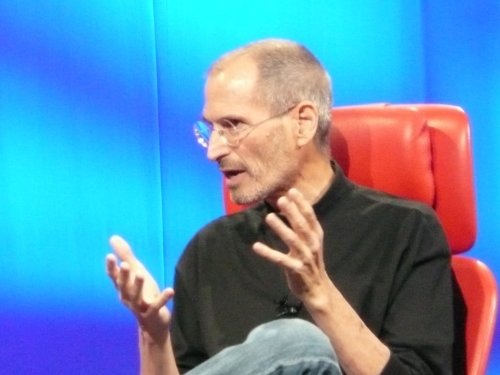 On PaidContent, Charles Arthur brings up one of the important facets of Steve Jobs’s legacy that tends to get overshadowed by Jobs’s hardware successes. Quite apart from all the gadgets Jobs designed, he also designed a new business model for the music industry: the 99-cent song.
On PaidContent, Charles Arthur brings up one of the important facets of Steve Jobs’s legacy that tends to get overshadowed by Jobs’s hardware successes. Quite apart from all the gadgets Jobs designed, he also designed a new business model for the music industry: the 99-cent song.
The headline of Arthur’s article suggests that Jobs’s great success was “persuading the world to pay for content,” but the article itself seems to take the opposite tack: the world was ready to pay for content, but Jobs’s success was in persuading the content-owners to sell it digitally.
Arthur explains that Jobs was able to get the record labels to let him start selling music through iTunes on the strength of Apple being such a tiny player in the industry at the time, but its sales far outstripped record-label expectations from day one—and not only was this the key to the phenomenal growth Apple experienced over the last decade, but it also ushered in the era of digital content sales on the Internet.
Nowadays Apple sells TV shows, films, books, apps, as well as music. We take the explosion in available content for granted. But without Jobs, it’s likely we wouldn’t be here at all; his negotiating skill is the thing that Apple, and possibly the media industry, will miss the most, because he got them to open up to new delivery mechanisms.
Arthur points out that companies have been and are still reluctant to allow consumers to pry content loose from their physical media. Just look at Blu-ray, a format that Hollywood’s incipient digital piracy paranoia causes it to break, intentionally, a couple of times per year, so that new movies won’t work with older players until they get updated firmware.
(This causes all sorts of unnecessary trouble—in my day job supporting a major brand of TVs and Blu-ray players, I frequently hear complaints from people who own players whose firmware the company has decided to stop updating. “How are we supposed to watch these newer movies?” they ask. “All you can do is buy a new player,” I have to tell them. You never got that with DVDs!)
Jobs was able to slip past that sort of content-holder objections, perhaps with the aid of his famous Reality Distortion Field. Thanks to him, digital content found new markets it might never have found if he hadn’t persuaded its owners to unbend a little.
Of course, e-books are one form of digital content whose success Jobs had little to do with. He famously scoffed at e-books and e-reading for years, leaving it to Jeff Bezos to take e-books from a few relatively small stores that formed a fraction of a percent of the overall book market to the huge 25%-market-share behemoth they are today. Jobs did try to hitch his wagon to that star with the iPad, and probably part of that tablet’s huge sales are due to people wanting to read e-books with them. And it’s true that the blame for the agency price model can be laid at his door. Yet compared to Amazon and Barnes & Noble, the iBooks store still remains an also-ran.






























